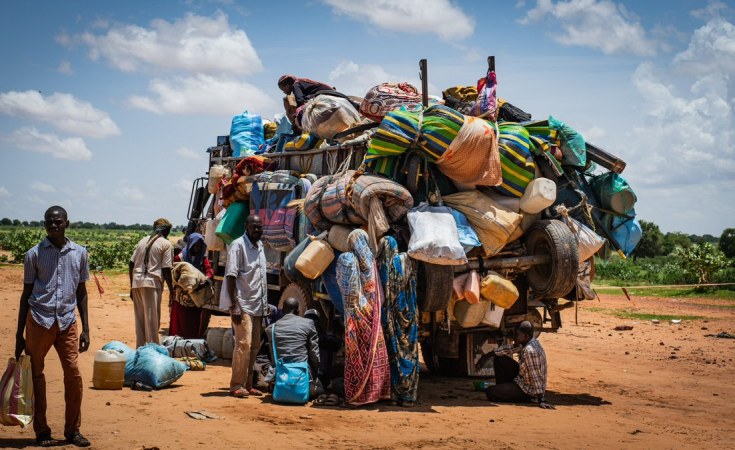Millions of displaced people in Sudan, already suffering from the devastating impact of a nearly 16-month-long war, are now grappling with worsening conditions due to heavy seasonal rains and flooding, the Office of the UN High Commissioner for Refugees (UNHCR) said on Friday.
The conflict, which erupted last April between rival militaries - the Sudanese Armed Forces (SAF) and the Rapid Support Forces (RSF), has left over 12 million people displaced, both within Sudan and across its borders.
"Heavy rains and flooding have already impacted tens of thousands of people across Sudan, causing further displacement, injuries and deaths," UNHCR spokesperson Olga Sarrado told journalists at a regular press briefing at the UN Office at Geneva (UNOG).
In the past two weeks, refugees in eastern Kassala province have been impacted by severe floods, including many families who recently arrived after fleeing violence in Sennar state and who were sheltering in five gathering sites and reception centres.
Displaced multiple times
Ms. Sarrado informed the press that the displaced have been forced to move three or four times since the start of the conflict.
"They have lost their belongings, including food rations, and are facing significant challenges in accessing clean water and sanitation facilities, increasing the risk of waterborne diseases," she said.
"[We] and our partners are on the ground making every effort to assist the most vulnerable. Together with state authorities, new land has been identified where tents are being set up to accommodate the affected families," she added.
Children most at risk
Children, meanwhile, continue to remain most at risk. On top of the prevailing insecurity and multiple displacements, their futures are also at risk.
According to the UN Children's Fund (UNICEF), 18 million children in Sudan are out of schools.
Sheldon Yett, incoming Representative for Sudan at UNICEF, spoke with UN News from Port Sudan, stressing that classes, even if remote, are vital.
"It provides a location, a sense of normalcy for children, a place for them to meet with their friends, their peers, to feel at home. It is crucial that we get schools up and running, that we get them open, that schools are actually used for education, not for displaced centres, but for places for students for learning. And we have more work to do on that," he said.
"This is the largest displacement crisis in the world right now. Many schools are hosting displaced populations. We need to ensure those schools are reopened for children."
Listen to the full interview below
Flooding situation
According to UNHCR, the situation is particularly dire in Shagarab refugee camp, where more than 400 shelters have been destroyed, leaving an already vulnerable population in even greater distress.
As the rains continue, the agency's teams are bracing for further impacts in other states, including Gedaref, White Nile, and Blue Nile, prepositioning key relief items and shelter kits, cleaning drainage systems and building dikes to protect.
However, in the war-torn Darfur region, flooding is severely hindering the ability of aid agencies to reach those in need, exacerbating an already catastrophic humanitarian situation.
Decimated livelihoods
The conflict in Sudan has decimated crops and livelihoods, with the climate crisis further endangering the displaced population. Flooded land has rendered farming impossible, intensifying hunger in regions already plagued by drought and violence.
Considering the escalating crisis, UNHCR launched a regional floods appeal for nearly $40 million to assist and protect 5.6 million refugees, returnees, internally displaced persons (IDPs) and local communities across East Africa, including in Sudan.
So far, however, only $5 million of the needed funds have been secured.


